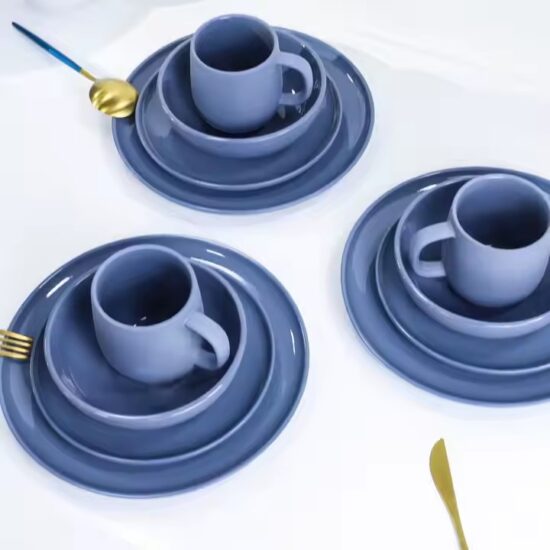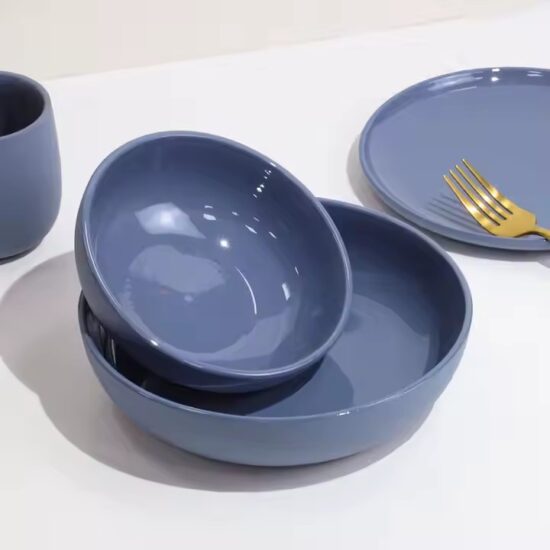bob@nbdho.com
What Safety Certifications Are Needed for Ceramic Tableware? | Compliance Guide
What Safety Certifications Are Needed for Ceramic Tableware?
When manufacturing or exporting ceramic tableware, especially for global markets, safety compliance is not optional—it’s a necessity. Whether you’re a brand sourcing dinnerware or a supplier providing custom designs, understanding relevant certifications and safety standards is key to avoiding legal issues, customer complaints, and supply chain delays.
In this article, we cover the most important safety certifications for ceramic tableware used in food contact, across different regions.
1. FDA Compliance (United States)
The U.S. Food and Drug Administration (FDA) regulates materials that come into contact with food. For ceramic tableware, the main concern is lead and cadmium leaching.
✅ Key points:
-
Must comply with FDA CFR 21 Part 175–177 for food contact.
-
Requires testing by an accredited third-party lab.
-
Applicable to items like plates, bowls, cups, and serving ware.
👉 Many U.S. importers will require documented FDA test results before shipping or retail.
2. California Proposition 65 (Prop 65)
California’s Proposition 65 requires that businesses warn consumers about significant exposures to chemicals that can cause cancer, birth defects, or other reproductive harm.
✅ Key points:
-
Ceramic products must be tested for lead and cadmium, especially if decorated or glazed.
-
Failure to comply can result in fines and legal action—even if the product is sold outside California but enters the state through e-commerce.
📌 Important: Even if your tableware complies with FDA standards, Prop 65 may have stricter limits.
3. LFGB Certification (Germany & EU)
LFGB is Germany’s equivalent of FDA compliance but with more rigorous testing. Many EU importers prefer or require LFGB certification, especially in Germany, Austria, and Switzerland.
✅ Key points:
-
Tests for chemical migration, heavy metals, and sensory effects.
-
More strict than general EU Framework Regulation (EC) No. 1935/2004.
-
Often considered a sign of high-quality ceramic ware.
🌍 LFGB compliance is widely accepted across Europe.
4. EU Regulation 1935/2004 (European Union)
This regulation applies to all materials intended to come into contact with food in the EU.
✅ Key points:
-
Requires food contact materials to not transfer harmful substances into food.
-
Covers labeling, traceability, and safety documentation.
-
Often used together with specific national tests like LFGB.
5. SGS / Intertek / TUV Lab Test Reports
Although not a certification in itself, lab test reports from recognized institutions like SGS, Intertek, or TUV provide trusted proof of compliance.
✅ These tests can cover:
-
Lead and cadmium release
-
Dishwasher/microwave/oven safety
-
Thermal shock resistance
-
Overall material migration
👍 Many importers request third-party test reports even if not mandated by law, especially for private label products.
6. Other Market-Specific Certifications
Depending on the region, additional certifications may be required:
-
Japan: Food Sanitation Law (厚生労働省) for ceramic imports
-
Australia/New Zealand: Food contact compliance under AS 2070
-
Canada: Health Canada requirements for foodware
-
GCC countries: GSO regulations for ceramic food contact materials
✅ Summary: Certifications Checklist
| Certification | Region | Mandatory? | Focus |
|---|---|---|---|
| FDA | USA | Yes | Lead/cadmium, food contact safety |
| Prop 65 | California | Highly recommended | Chemical exposure limits |
| LFGB | Germany / EU | Often required | Chemical migration, sensory test |
| EU 1935/2004 | Europe | Yes | Food contact, labeling, traceability |
| SGS/Intertek | Global | Depends on buyer | Testing reports, brand assurance |
✅ Conclusion
Safety certifications are critical for ceramic tableware manufacturers, exporters, and wholesalers looking to serve global markets. Failure to comply with international food contact regulations can result in shipment rejections, product recalls, or legal penalties.
By working with a trusted factory that understands FDA, LFGB, and other global standards, you ensure that your products are market-ready and legally compliant.
📞 Contact us today to learn more about our testing capabilities and how we help clients meet safety certification requirements for ceramic dinnerware worldwide.

